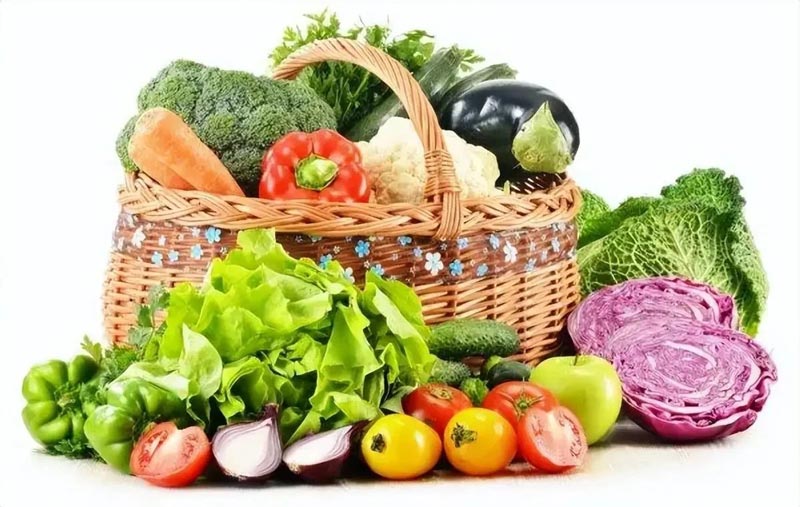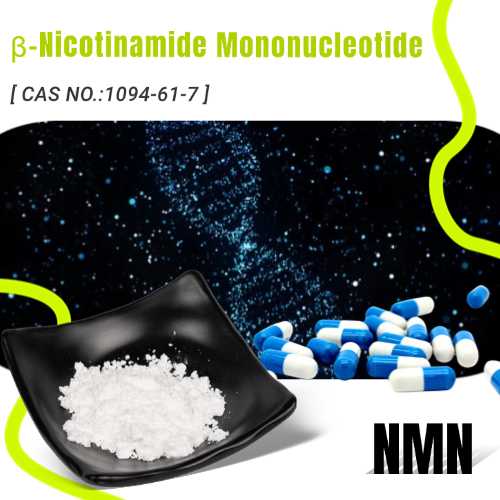What is NMN?
NMN, full name Nicotinamide Mononucleotide, is a natural compound found in all living cells and is a derivative of vitamin B3 (niacin). NMN plays a key role in cellular energy metabolism and is a precursor to NAD+ (nicotinamide adenine dinucleotide).

As we age, levels of NAD+ gradually decline, which has been linked to a variety of age-related diseases.
Supplementation with NMN can increase levels of NAD+, which may combat age-related physiological decline.
What foods are rich in NMN?
Although NMN can be consumed through supplements, it is also present in some everyday foods.
The following are some foods containing NMN, it should be noted that the content of NMN in these foods is relatively low, and can not fully meet the human body’s need for NMN.
If you need to supplement with NMN, consider choosing an NMN supplement.
vegetable
Broccoli: Broccoli is a nutritious vegetable that contains a certain amount of NMN. It is rich in vitamin C, vitamin K, dietary fiber and other nutrients, good for health.
Cucumbers: Cucumbers also contain small amounts of NMN. Cucumber has high moisture content and has the effect of clearing heat and removing water, detoxification and detumescence.
Cabbage: Cabbage contains a variety of vitamins and minerals, but also contains a certain amount of NMN. It has antioxidant, anti-inflammatory and other effects.
fruit
Avocados: Avocados are rich in healthy fats, vitamins and minerals, while also containing small amounts of NMN. It can help lower cholesterol and protect heart health.
Tomato: Tomato is rich in vitamin C, lycopene and other antioxidant substances, also contains a certain amount of NMN. Tomato has anti-oxidation, anti-cancer and so on.
meat
Raw beef: Raw beef contains small amounts of NMN. Beef is an excellent source of protein and is rich in minerals such as iron and zinc.
seafood
Shrimp: Shrimp is rich in protein, vitamins and minerals, and also contains a small amount of NMN. Shrimp is high in protein and low in fat, which is good for health.
Foods with high levels of NMN
According to the calculations of Professor Shinichiro Imai’s research team at the University of Washington, the following are some foods with high NMN content:
- Edamame: 100g edamame contains NMN 0.47 ~ 1.88mg
- Broccoli: 100g broccoli contains NMN 0.25 ~ 1.12mg
- Cucumber: 100g cucumber contains NMN 0.56mg
- Avocados: contain 0.36 ~ 1.60mg of NMN per 100 grams
- Cabbage: contains 0 ~ 0.90mg of NMN per 100 g
- Tomato: 0.26 ~ 0.30mg of NMN per 100 g
- Mushrooms: contains NMN 0 ~ 1.01mg per 100g
- Raw beef: NMN 0.06 ~ 0.42mg per 100 grams
Limitations of dietary supplementation with NMN
Although the above foods contain NMN, the amount is relatively low.
For example, to reach a 500 mg NMN supplement, one would need to consume a large amount of food, such as 119 kilograms of beef, 520 avocados, or 100 pounds of mushrooms.
It is not practical to supplement NMN from food
It is difficult to get the required amount of NMN through food alone.
According to the FDA’s equivalence principle, a 70Kg adult should supplement 600mg of NMN per day, and an adult supplementing with the same amount of NMN would need to eat 32 to 128kg of edamame, or 54 to 240kg of broccoli.
And this is still in the case of complete absorption, which is obviously unrealistic, supplementing non-food sources of NMN is particularly important.

Advantages of NMN supplements
To supplement NMN more effectively, consider using NMN supplements.
High purity NMN (99.99%) This supplement not only provides a high content of NMN, but also the exclusive 5 major formulations, compound ingredients, the effect is more significant.
Here are some of the benefits of NMN supplements:
- Increase NAD+ levels
- Anti-aging potential
- Support cell health
- Promote energy metabolism
- Improve cardiovascular health
- Support neurological health
- Enhance body function
- Improve sleep quality
- Easy for the body to absorb
- Capsule for easy use
It is important to note that despite the potential advantages of NMN supplements, they are not a panacea, and each person may respond differently.
Although NMN is found in some foods, it is difficult to achieve the required amount through food intake.




